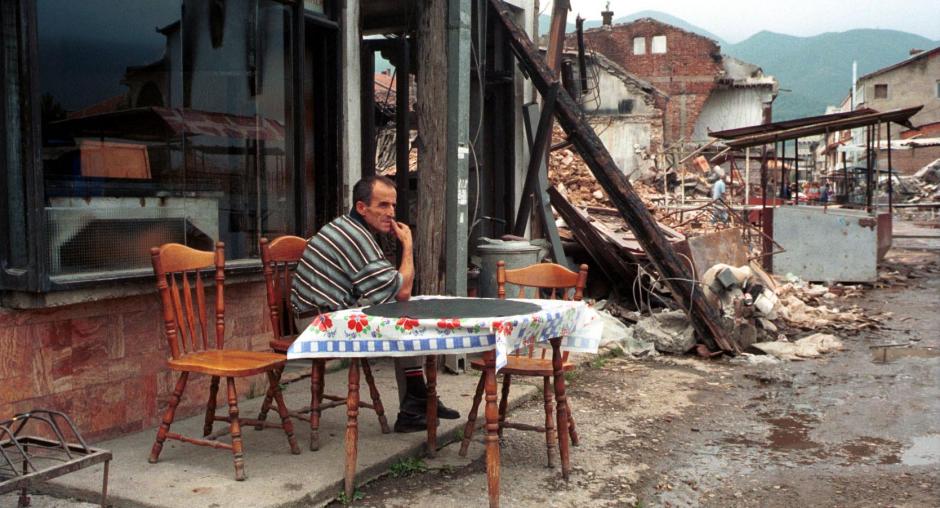Putting the process of returns to Kosovo into local hands
The return of refugees and internally displaced persons (IDPs) quickly became a priority for the international community, including the OSCE, but local actors are now becoming more involved.
Returnees' security concerns
"Immediately after the conflict, ethnic minority communities did not trust Kosovo's governmental structures, and many ethnic Serbs and Roma still have reservations," says Jose Arraiza, an advisor on property issues at the OSCE Mission in Kosovo.
Communities are sceptical of the ability of local courts to resolve property disputes. But security concerns - occasionally fuelled by ethnically-motivated violence, usually between Kosovo Albanians and Kosovo Serbs - present the biggest obstacle.
The UN Interim Administration Mission in Kosovo (UNMIK), set up at the end of the conflict, was given the task of creating domestic institutions of self-government that would take on the responsibility of encouraging the returns process.
Charged with democratization, institution-building and promoting human rights, the OSCE Mission in Kosovo is an integral part of the UNMIK operational framework. To help refugees and IDPs return, the UN established the Housing and Property Directorate (HPD) in 1999, which has since presided over 20,000 eligible property claims. Arraiza insists, however, that the process is too slow and that greater efforts are needed.
"We still have more than 5,000 housing units under HPD administration that belong to people who do not feel comfortable returning," he says. In addition, 10,500 properties were destroyed and 2,000 properties are still illegally occupied, although the HPD has decided they should be returned to their rightful owners.
Local actors take charge
Kosovo's Provisional Institutions of Self-Government (PISG), the key partners in the returns process so far, are now starting to take a greater role in overcoming the obstacles.
"Responsibilities are being transferred and the PISG are assuming a greater role in administering Kosovo," points out Ambassador Werner Wnendt, Head of the OSCE Mission.
Nasar Rugova is a political advisor in the Office of Kosovo's Prime Minister: "The Government has intensified its efforts to increase trust between the different ethnic communities. We have a tradition of living side by side, and that needs to be reinforced."
For more than eight months, Rugova was a member of a working group on roles and responsibilities in the return process, created by the Government with help from the OSCE and UNMIK's Office of Communities, Returns and Minority Affairs.
Defining roles and responsibilities
The working group, comprised of IDPs, non-governmental organizations (NGOs), media professionals, and Government and political party representatives met regularly from September 2005 to April 2006. "With such broad membership, our aim was to gain greater credibility among IDPs and returnees," says Rugova.
The group's tasks included defining the roles of local actors in supporting returns and further developing the Government's strategy and policies to make returning easier.
The group recommended the following:
- better co-ordination between municipal return officers and Kosovo's central Government, which approves funding for return-related projects;
- providing greater financial assistance to returning refugees and IDPs;
- preventing discrimination through improved implementation of anti-discrimination legislation; and
- including projected return costs within municipal and central budgets.
In addition to greater financial support, it also asked for policy changes to help refugees and IDPs return to locations of their choice.
The group called on IDP associations and other NGOs to become more actively involved in the work of local and central government to ensure better representation of their interests. The media was also asked to help create a more positive perception of the returns process to ease returnees' reintegration in local communities.
Achieving returns
The working group and its process of consultation have improved government policies and have helped clarify the roles and responsibilities of all stakeholders. While the international community will support their efforts, Arraiza says, "It cannot do much if the most important actors - local government, IDPs and civil society - are not leading the process."
Having local actors in charge becomes even more important with the expected definition of Kosovo's status and the end of the UN Administration. The OSCE is therefore continuing to support local actors in doing their best to make returns happen.

